This post may contain affiliate links. Please read our disclosure policy.
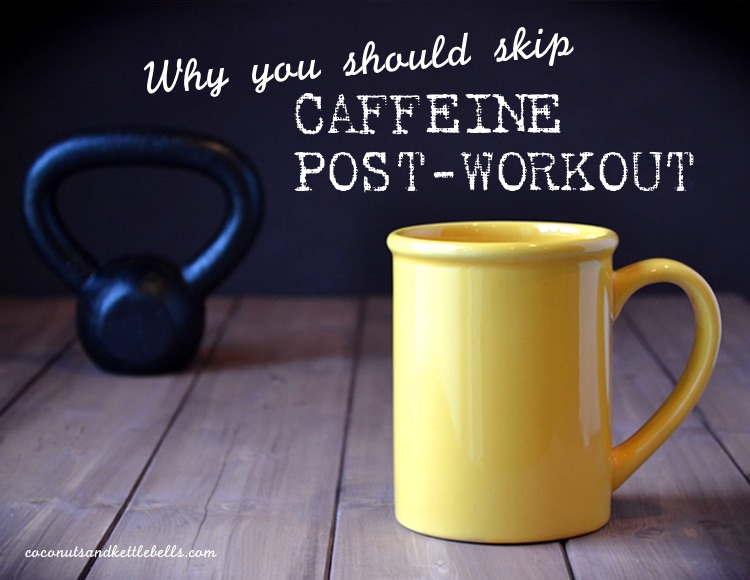
While sipping coffee pre-work can be great for your training endeavors, consuming caffeine post-workout may not be the best choice when it comes to overall health and performance.
Confused? You’re not alone.
With compiling research in favor of America’s favorite cup o’ joe, it’s probably accurate to assume coffee will eventually become the next superfood. Unfortunately, all the buzz tends to be very confusing for people who aren’t familiar with scientific literature, especially when it comes to implementing more specific strategies like consuming caffeine post-workout.
So, why does coffee get so much love? While virtually none of us need more of a reason to consume it, coffee is thought to be one of the richest sources of antioxidants. These chemical compounds are incredibly beneficial for us because they help neutralize harmful free radicals in the body.
Coffee also contains caffeine, an alkaloid that occurs naturally in the leaves, seeds or fruit of more than 60 plant species. As you’ve most likely experienced firsthand, caffeine is a stimulant drug, which means it speeds up the messages traveling between the brain and the body.
While caffeine has been linked to side effects like a fast heartbeat, dizziness, and sleep issues, caffeine has been shown to have positive effects on sports performance, and might even help protect against cognitive decline, Alzheimer’s disease, and certain cancers.[1][2][3]
Jump to:
How Does Caffeine Work?
Caffeine resembles an inhibitory neurotransmitter in our body called adenosine, which promotes sleep by slowing down nerve activity throughout the day. Our body has a number of adenosine receptor sites, and because caffeine looks a lot like adenosine, it binds to these receptor sites and inhibits adenosine from doing its job. As a result, once absorbed – caffeine stimulates cellular function, and there’s an increase in the firing of neurons in the brain.
Caffeine also constricts blood vessels because it blocks adenosine’s ability to open them up, which is why caffeine is associated with pain reduction. Restricting adenosine also helps dopamine do its job more efficiently, potentially resulting in increased happy dances.
So, why does caffeine make us feel superhuman? When the brain senses a rather large build up of adenosine and an increase in the firing of neurons, it makes the assumption that there’s an emergency that needs to be resolved. Since emergencies are kind-of-a-big-deal, the pituitary communicates to the adrenal glands it’s time to initiate the stress response. This is why caffeine is shown to increase cortisol and adrenaline at rest, which are both hormones produced by the adrenal glands that help us during times of stress.[4]
Consuming Caffeine Pre-Workout
There is a plethora of research that shows consuming caffeine pre-workout can improve performance, motivation, and reduce muscle soreness during workouts for both new and long-term caffeine users.[5][6][7][8]
This makes sense, given what we know about how caffeine sort of “pre-loads” the stress-response, and heightens our ability to do awesome things.
Caffeine has also been shown to increase testosterone (an anabolic hormone) during workouts, which is helpful when counterbalancing increased cortisol levels (a catabolic hormone.) Given what we know about testosterone, this little boost might result in improved protein synthesis and muscle growth.[9][10]
And, despite the fact that it’s widely assumed that coffee is a potent diuretic, research shows that caffeinated beverages like coffee do not have dehydrating effects on the body, nor do they induce electrolyte imbalances. This has been found to be true when looking at overall hydration status, and measuring fluid excretion, as well as excretion concentrations.[11][12][13]
Conclusion: Cheers to caffeine pre-workout!
PS. I highly recommend getting your drink on with this brand as the taste is knock-your-socks-off good, and the company takes incredible care of the farmers (and their families) who harvest their coffee beans.
Consuming Caffeine Post-Workout
A quick search in the Google monster will reveal quite a few articles that contradict each other when it comes to consuming caffeine post-workout. Shocking, I know. So, what’s the root of the confusion? Oh, just a couple of studies.
The first study, published in 2008 by The American Physiological Society, showed when seven high-level male athletes ingested carbohydrate with a high dose of caffeine after a workout, it resulted in 66% more glycogen in muscles four hours after the workout in comparison to consuming carbohydrate alone.[14] At first glance, that seems like a major win for muscle recovery.
But, here’s where things don’t add up. This study was actually a single dose experiment, which we know isn’t reliable for conveying how caffeine affects us in the long run. Studies show that our bodies adapt to certain doses of caffeine when exposed regularly, which can occur in as little as 1 to 5 days.[15][16]
The reality is, the majority of the people consuming caffeine post-workout are regular caffeine consumers. While this doesn’t mean caffeine’s effects are completely eliminated, it does mean that single-dose experiments which utilized incredibly high doses of caffeine (equivalent to 5-6 cups of coffee) is entirely inapplicable for the majority of the population.
The second study, which was done in 2007 at University of Georgia, showed caffeine reduced post-workout pain by 46%.[17] However, because this study only examined perceived effects on nine female college students who were not regular caffeine users and did not engage in regular strength-building training, it doesn’t give me any confidence that this is something the rest of the population should rely on.
Conclusion: Keep reading! (In other words… It’s complicated.)
Why You Should Skip Caffeine Post-Workout
While I don’t believe consuming caffeine post-workout is inherently bad or useless, both of these studies fail to recognition the long-term effects of increased cortisol production. In general, training is a stressor on the body. During workouts, our cortisol levels increase, and consuming caffeine post-workout further stimulates cortisol when we should be prioritizing reducing catabolic hormones and clearing byproducts from the body.
Despite the fact that we can build up a tolerance to caffeine and its ability to stimulate cortisol, studies show that even after regular use, repeated exposure to caffeine throughout the day still results in elevated cortisol levels in the afternoon.18 Since many of us consume caffeine pre-workout, consuming caffeine post-workout is likely to be the second exposure we have during the day. Repeated exposure has already been shown to elevate cortisol levels, even when additional stressors like workouts aren’t a part of the equation.
To add to that, we know women are more sensitive to hormonal changes, specifically when it comes to how the stress response impacts the rest of the endocrine system. As a result, activities that require the adrenals to produce cortisol must be managed carefully when it comes to a woman’s overall health and fertility.
And because the majority of people are exposed to high levels of emotional and physical stress throughout the day, and we all generally suck at managing our stress appropriately, reducing stress – specifically, reducing cortisol levels, seems to be a better priority. Chronically elevated cortisol levels causes inflammation, insulin resistance, cardiovascular issues, immune suppression, and can eventually lead to adrenal and thyroid dysregulation – to name a few.
While these conditions can definitely impact our ability to recover well, build muscle, and maintain leanness, the long-term implications may be far more important to consider – depending on your personal goals and priorities, of course.
What To Do Post-Workout (instead!)
So, what should you be doing post workout to fuel your muscles, clear away cortisol, and become a whole bunch of awesome? In short – eat food, hydrate well, and get some sleep. Studies show consuming a combination of protein and carbohydrates after your workout will help to reduce cortisol level, and provide fuel for muscle protein synthesis.
For further insight on post-workout hydration and fueling, check out my 20 Post-Workout Food Options.
Do you use consume caffeine before or after your workouts? I’d love to hear your experiences below!
Live empowered,
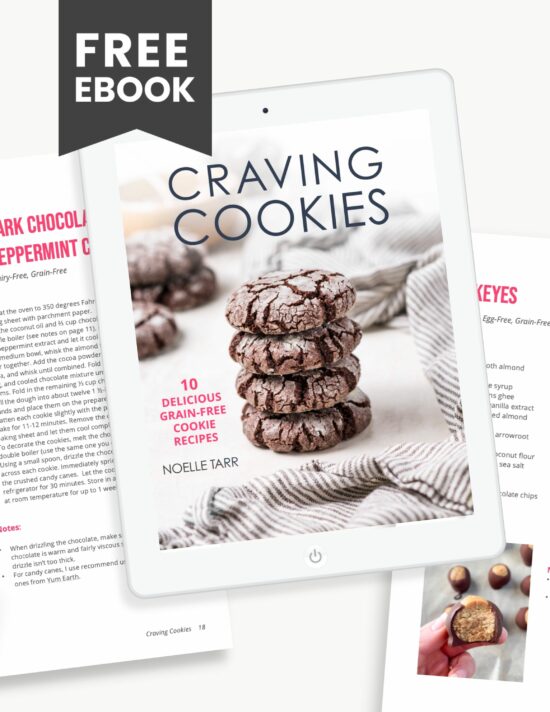

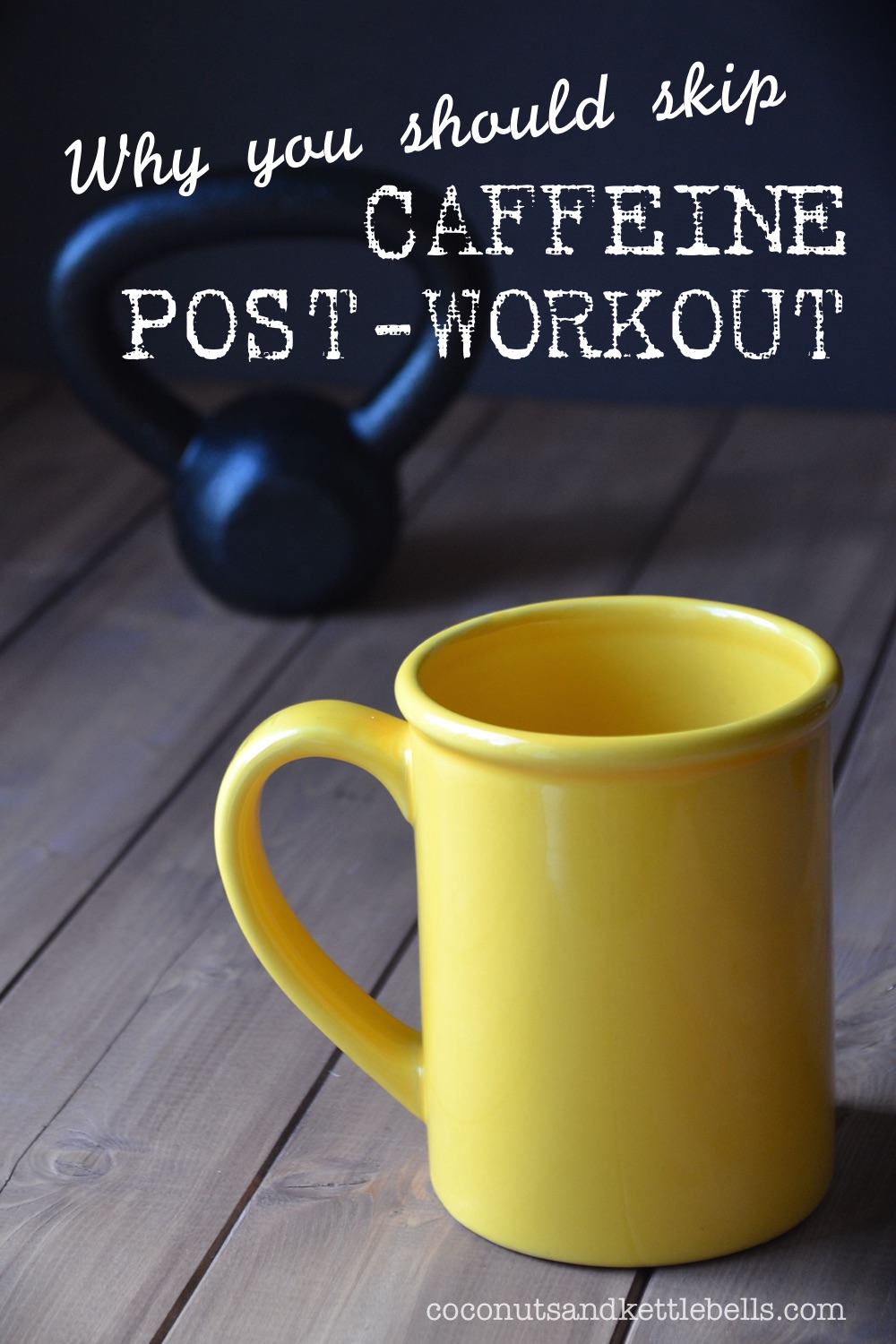
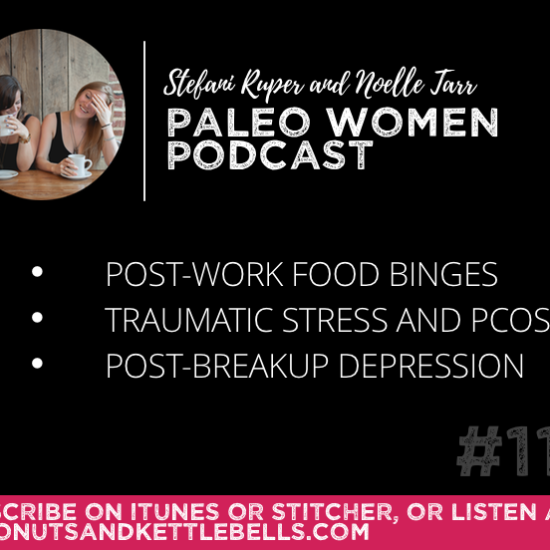
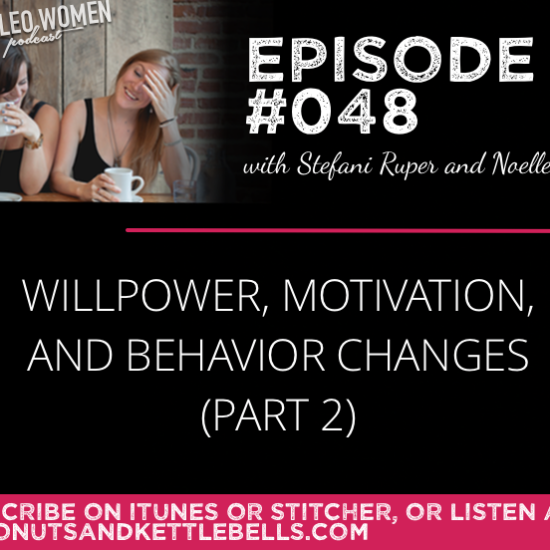
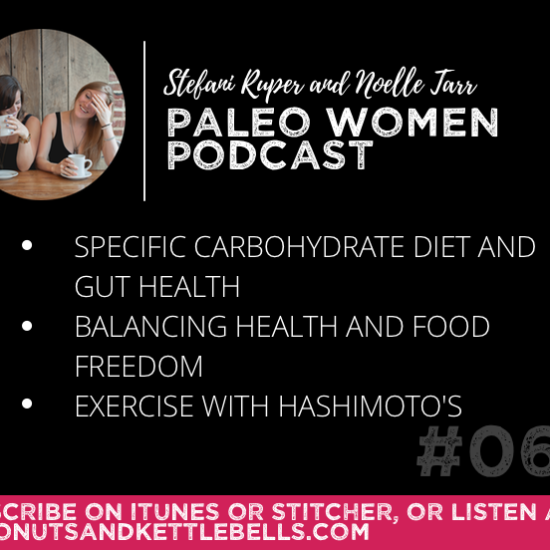
Meg @ Meg the RHN says
Awesome topic lady! Love your info 🙂
Carlo says
1 flaw with your conclusion.
😳
No study to show taking coffee post workout is bad .
I’m neither for or against it
If you don’t have a study to support your end position, then it’s just your opinion.
I do like the information you provided.. 😊
Abigail says
I normally drink coffee with butter and MCT oil post workout because I workout first thing. After reading this I might reconsider when I drink my cup of coffee.
ahealthyhappyhome says
Interesting. A few mornings a week I workout first thing so drink coffee after but usually with my protein and carb breakfast. I definitely try to limit my fat intake post workout as to not hinder muscle recovery but never thought to avoid caffeine. Guess I’ll start monitoring that too 🙂
Tina says
Does it make a difference if you drink decaf after a workout?
Noelle says
Not that much. 🙂 Decaf has very little caffeine in it, so as long as you’re not guzzling it – I personally don’t think it will have the same impact. Hope that helps!
paulina lagudi says
I am starting to eliminate coffee in order to repair my adrenals and not be dependent on it, so slowly weaning off using tea. However, I want to eventually bring it back in my diet as a pre-workout down the line. How do you drink yours? Do you add the coconut oil and all the goods as pre-workout fuel? BTW…LOOOVE the podcast. It has helped me so much on my journey dealing with PCOS, and made my holistic doctor super impressed with my knowledge that I gained listening to you and Stefani.
Noelle says
Hi Paulina! So, I actually drink my coffee black. I use a french press, and use single-origin coffee from Wild Foods (they are a new sponsor of the podcast! YAY!) It has incredible flavor, and I only drink a cup or two. My husband DOES put coconut oil and butter in his coffee, and he loves it. Personally, I don’t – and I can’t eat before I workout or I get sick to my stomach. SO glad you love the podcast! Thank you so much for listening… and for your support!
Chris says
You rock! Thank you for being so smart, articulate and, who knows, you’re probably pretty, as well!
Noelle says
You are welcome, Chris! 🙂
Taylor says
This is the first I’ve heard of this. Thanks for sharing this info! I just found your podcast and blog through Emily Schromm’s 21-day Superhero Challenge. I love all that you share and how you present it -especially here on your blog. So firstly, thank you! Now for this content… I’d like to get some clarity here. I only drink 1 cup of coffee per day, if that. That said, I love to work out upon waking, and then have my coconut oil-egg coffee after that. So you said it’s not ideal to have a second cup of caffeine – but do you still want to stay away from having caffeine post-workout, even if it’s your 1st (and only) cup for the day? Or would I want to stay away regardless, since mine is high in fat, and it sounds like fat post-workout impairs muscle building/recovery? I can’t drink something like that pre-workout unless it’s awhile before, and I do love my “bulletproof” lattes…. 🙂 Thanks for fielding this!
Noelle says
Hi Taylor! So nice to have you here. Welcome! I must say, I would recommend drinking the coffee pre-workout, as studies show it can benefit your workout performance. I would not recommend drinking bulletproof coffee post-workout, simply for the reasons you stated. Of course, you can still chose to do so, but you may not recover as well. Depending on the workouts your doing and your goals, it’s something to consider. Hope that helps!
kai says
how does energy drinks affect you post workout in comparison to coffee since it has taurine and double the amount of caffeine?
Noelle says
Hi Kai! Energy drinks are best pre-workout. Wouldn’t recommend them post-workout.
kate says
How long should you avoid coffee post workout? I tend to workout pretty early (6am) and then drink coffee around noon. Still a good idea to avoid or a long enough time afterwards?
Thank you! Love your site!
Noelle says
Hi Kate! Thanks so much for your support! Unfortunately, there’s no research at all on this—so I can’t provide a helpful answer. I would experiment with it a bit, as everyone is different. If you’re under a lot of stress, might be a good idea to avoid it all together. If you’re not under a lot of stress and get a good post-workout meal in, noon might be OK. In general, I don’t recommend drinking coffee anytime after 2pm long-term to maintain appropriate circadian rhythm function.
Tom Day says
Hi Noelle, realizing this is an old post, I stumbled here by researching how long to wait to drink caffeine after training. It’s been a topic I’ve heard from others recently but can’t find how long I should actually wait. Thanks for sharing all this info. What do you think and have you found any data on that?
Noelle says
Hi Tom! There is no data on a set time. I would recommend experimenting with it to see what works for you! 🙂
Jose wyn says
Hi Noelle, my question might be out topic, is ok to eat immediatedly after a hard workout?
Noelle says
Sure! If you feel hungry and ready to eat, go with it.
Danielle says
I am a long time coffee drinker. I stopped drinking it Monday and started working our using a pre-workout drink (N-O XPLODE) which has 275 grams caffeine. Today is Thursday and I am pretty sore. Today I’m thinking of coffee because I don’t feel like working out. I need energy. Should I instead take the drink even though I’m not working out today? or is coffee ok? I thought about the drink and ibuprofen and making myself work out but all the protein and change of diet this week is exhausting. I wanted to quit coffee all together but I need some energy either coffee or the drink. What do you think?
Noelle says
Instead of going cold turkey, I would recommend slowly titrating down the amount of coffee you drink so that your body can adjust without you crashing. If you’re pretty sore, PLEASE REST. You will do more harm than good trying to take medication and push through it. Please read How to Know When to Take a Rest Day for more information.
Pranay says
I recently tried black Coffee (no sugar) post work out and I felt very wonderful. It relaxed my body big time. I can not imagine drinking coffee before workout as it will bloat me up. I also added Coconut oil to it and it was very refreshing. I would still prefer to drink afterwards though….But thanks for your article. I usually listen to my body. I would agree on quantity to be less and black and no sugar
Noelle says
Totally up to you what you do with the information. 🙂
ella says
so if I drink only a half of cup after a workout will it have any effect at all because it’s such a little amount?
Noelle says
Depends on the type of workout you’re doing, how much caffeine is in it, what your adrenal health is like, etc.
Jay says
Funnily enough I stumbled across this post because of all the contradicting info out there. What I take from it all is that coffee and carbs is bad before a workout as the carbs aren’t needed and are stored as fat. Post workout there is evidence of caffeine helping carb uptake when the body actually needs carbs to refuel. George Lockheart was actually the first person I heard talking about this. He swears by it post workout and works with alot of the UFC fighters.
Its a minefield but what I have found to work is black coffee pre workout with a protein and fats meal. Caffeine and carbs post workout when it’s early in the day. When I train MMA in the evenings my post workout is carbs, ALA, potassium and magnesium for recovery.